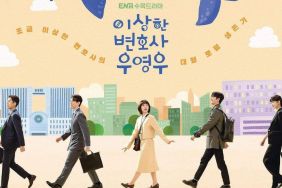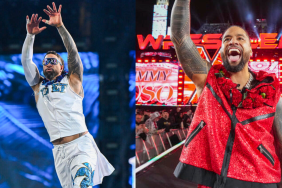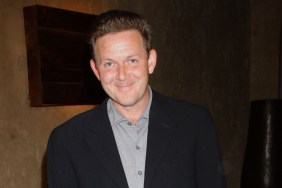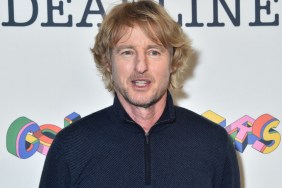When Tommy Lee Jones stars in a movie whether it be a comedy or a drama you know you’re getting intensity. Mr. Jones shows that once again in the new drama, In the Valley of Elah.
Written and directed by Paul Haggis (Crash), Elah tells the story of the search for the killer of a soldier, just back from a tour of duty in Iraq. Based on true events, Tommy stars as the father, and former soldier himself, desperate to find out who mutilated his son’s body. Charlize Theron plays a local police officer who assists Tommy; Elah also stars Susan Sarandon as Tommy’s wife and the soldier’s mother.
When Tommy got the Haggis script, it was more about finding how to bring this character home to him rather than making him larger than life. “I think that’s part of growing as a motion picture actor to realize that. In this movie, I’m playing the father of a damaged veteran of war. And I think the father is damaged in his own way, and the damage he’s undergone is that he’s suffering from blind, ethnocentric patriotism, and he pays a price for that in his own way.”
Taking on a role like this for Charlize, she took the politics out of the story, and focused on the character. “This story was the truth, that really happened; my character wasn’t part of the real story. But as a human level, that really touched me, and I really wanted to tell it. This was a human story, it was the truth. Politically, I didn’t feel there was any agenda; I didn’t feel like this was pro-war or against war. The reality is we are at war and we are sending these very young kids out there, but they’re coming back here and we can’t expect them to fit back into normal society. We have to give them the right tools, and we’re not. And that’s something that really touched me, because I’ve met people who’ve gone over there and fought.”
Tommy and Susan’s relationship was shown through phone calls; a very strained relationship already, the calls seemed to heighten the tension between the two. Susan points out it was working with Tommy in the past which helped show that. “The phone calls are what the phone calls were; I had already done my sides of the phone calls when I was still in New York. We didn’t chat back and forth; he’s not a chatterer. But we were lucky because we had worked together before, so maybe that helped; I felt comfortable. It takes me a week to settle down, but I felt very comforting that it was Tommy Lee and I felt that I knew him and I felt safe with him, and I respect him as an actor. And that helped a lot.”
Haggis also hired actual soldiers to portray the ones in the movie; the three main actors were Wes Chatham, Sean Hughes, and Jake McLaughlin. All three say being back from Iraq wasn’t nearly as intimidating as acting opposite Tommy Lee Jones and Charlize Theron. “He’s constantly thinking, you can tell,” noted Jake.
“The thing about Tommy is he has so much power,” says Wes. “And when you’re doing a scene with him, his belief is so powerful he pulls you into the story. You do all the research to prepare, and when you show up, you just let all that go and he leads you into the story. It’s such a truthful performance. I remember at one point, I was sitting around and thinking, ‘Man, a Paul Haggis movie you ask me a year from now and I couldn’t even dream up anything like this.'”
Jake joked, “And it’s the level of intimidation he offers. I hadn’t acted before, and here I go on a movie set, with these huge actors; Tommy Lee Jones is easily one of my favorite actors of all time. Here I am acting in a film with him, and that’s a little intimidating in itself. You’ve got to bring you’re A-game.”

Believe it or not, the intimidation factor was there for Charlize as well. “It was a combination of a few things,” she says. “There were very important scenes with these guys, and these guys aren’t professional actors. They showed up, and I was blown away; I couldn’t tell the difference between the real actors and the real soldiers. I think in a way, it was incredibly helpful to have them around just to stay on the road of truth, and as a human level. It was great having them around, and amazing actors. And I know why, because all this is so fresh for them, and all this is about the truth in their lives.”
Playing a veteran from Vietnam, Tommy’s character must realize that soldiers fighting in Iraq are being subjected to a lot more hardship now. He says the correlation of today’s war is pretty much the same. “It’s been said that war is hell. Those kids in the movie are being dehumanized by their experience. I hesitate to approach it, but we’ve been dancing around it all day, but is this a fraudulent war or not. As a viewer, as a member of the audience, that question is going to arise; and as a characteristic and a difference between Iraq and Vietnam was Vietnam a fraudulent war? How much of a threat were the communists in South East Asia? How much of a threat were the weapons of mass destruction? How deeply imbedded was Al-Qaeda in Iraq? Those questions are going to come up; they’re before us now whether we see the movie or not. But the movie renders those questions in dramatic terms, and immediately in emotional terms that you don’t always experience reading the New York Times.”
Susan added, “Maybe we shouldn’t have people deciding whether we go to war, who have not experienced a war. The people who have been in a war, who are now holding office, have very different approaches to these questions. And the fact that none of the guys, that were so eager to get us in there, had any experience of war nor did they listen to the people who had experience before. And they’re continuing not to understand what war means, and all of the discussion of whether it was a valid war or not, it’s the whole approach of how we got in and how quickly we got in. Only two people have kids even involved – these people making the decision, if they’re not going to have been to war, they should have at least see documentaries. They should understand that you don’t go into war without a discussion. War transforms you, even for the soldiers coming home.”
A lot of In the Valley of Elah is silent acting it’s the physicality and emotion that come through on screen. Charlize credits Paul Haggis for evoking that throughout the film. “I’ve always had a great value for that; I’m not a fan of words because I have a strong understanding for how powerful the physical can be. When Paul was starting my part, I asked him to cut down the lines; it was intense dialogue and that’s why I really liked this character. There were a couple of times, [in one scene] Paul had this secretary come over and hand me something at my desk. He told me, ‘She’s going to come up and say ‘sorry’ and you say ‘don’t worry.”’ And I said, ‘No, no, no, I can’t say anything; I’m so guilt ridden.’ So that was a great example of where there were no words needed there, there was nothing needed there. I always say I’m a great actor when I’m not saying anything and you’re shooting me from behind, always.”
But don’t worry, there are plenty of scenes where you can actually see Charlize straight on. In the Valley of Elah opens in theaters September 14th; it’s rated R.









